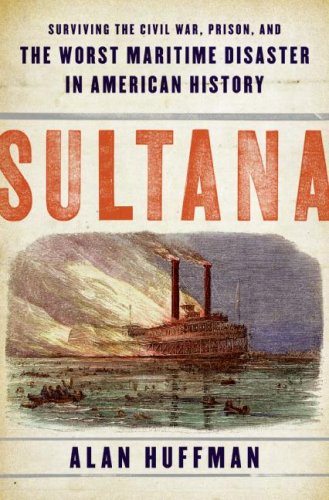

Most ebook files are in PDF format, so you can easily read them using various software such as Foxit Reader or directly on the Google Chrome browser.
Some ebook files are released by publishers in other formats such as .awz, .mobi, .epub, .fb2, etc. You may need to install specific software to read these formats on mobile/PC, such as Calibre.
Please read the tutorial at this link. https://ebooknice.com/page/post?id=faq
We offer FREE conversion to the popular formats you request; however, this may take some time. Therefore, right after payment, please email us, and we will try to provide the service as quickly as possible.
For some exceptional file formats or broken links (if any), please refrain from opening any disputes. Instead, email us first, and we will try to assist within a maximum of 6 hours.
EbookNice Team

Status:
Available5.0
40 reviewsA powerful account of a surprisingly forgotten tragedy of the Civil War
A stunning wartime account of human endurance and adventure, and an exploration of just how much the human body and mind can take, Sultana follows several young Union soldiers through the Civil War and what was, for them, its unimaginably disastrous aftermath. We see them enlist and then almost immediately be plunged into a cascading series of wartime horrors: Battle, trauma, prison camp, and, finally, the sinking of the Sultana, the steamboat that was taking them back home.
On an April night in 1865, the Sultana slowly moved up the dark Mississippi, its overtaxed engines straining under the weight of a human cargo that included an estimated twenty-four hundred passengers—more than six times the number it was designed to carry. Most were weak, emaciated Union soldiers, recently paroled from Confederate prison camps, on their way home after enduring the violence of war. At two a.m., three of Sultana's four boilers exploded. Within twenty minutes, it went down in fire and water, taking an estimated seventeen hundred lives.
The sinking of the Sultana remains the worst maritime disaster in American history, yet due to a confluence of contemporary events (Lincoln had recently been assassinated and the war had ended), it soon faded into relative obscurity. Now Alan Huffman presents this harrowing story against the backdrop of the endless suffering already endured by its survivors. Using contemporary research as well as digging deep into archives and family keepsakes, Huffman paints a gripping portrait of the young men who made it home alive.